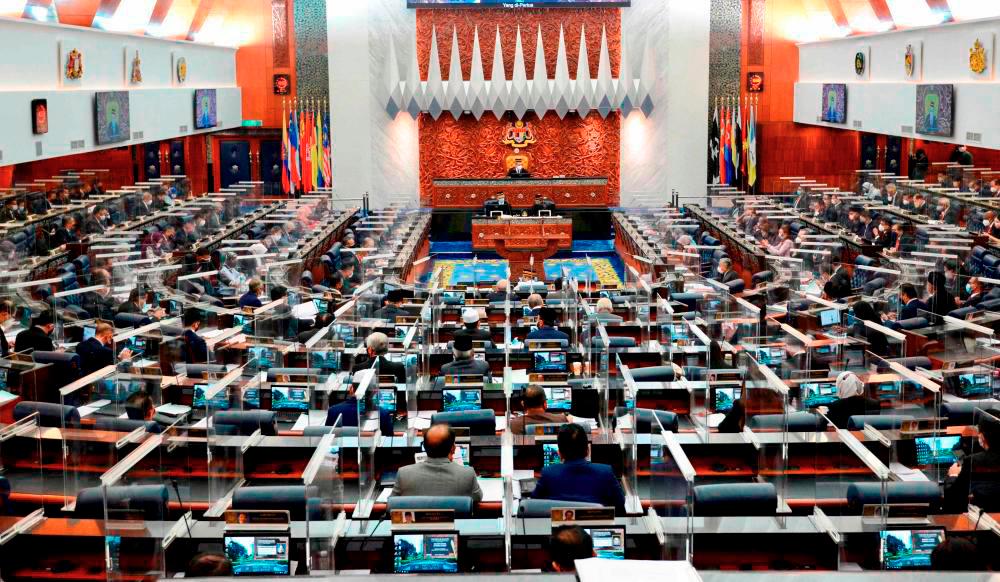PETALING JAYA: While the Anti-Stalking Bill passed in Parliament on Monday after its third reading is a step in the right direction, women’s groups say it should be improved with a longer protection period and a clear definition of what constitutes stalking.
The Bill serves to amend the Penal Code to make stalking an offence punishable with imprisonment of a term of not more than three years, a fine, or both.
“Whoever repeatedly by any act of harassment, intending to cause, or knowing or ought to know that the act is likely to cause distress, fear or alarm to any person of the person’s safety, commits an offence of stalking,” read Deputy Minister in the Prime Minister’s Department (Parliament and Law) Datuk Mas Ermieyati Samsudin when tabling the Bill.
She said the proposed amendment was to protect individuals from harassment in both offline and online environments.
All Women’s Action Society (Awam) Information and Communications officer Jernell C.E. Tan said making stalking a crime in the Penal and Criminal Procedure codes was crucial in ensuring access to redress – from filing a police report to obtaining protection orders so that the perpetrator cannot go anywhere near the complainant.
“However, the current amendments can be improved. Other forms of common stalking behaviour, such as publishing private information or that which identifies a person online (also known as doxxing), interfering with property and watching or spying on a person, should be included through future amendments to Section 507A(2) of the Penal Code to ease reporting to the police and subsequent investigations,” she said.
Tan added that the courts should be given the discretion to extend the protection order for stalking complainants, if it is deemed necessary to protect the individual’s well-being and safety.
The Bill currently provides for protection only as long as investigations or the trial is ongoing, whichever is later.
She said in Awam’s analyses of testimonies by former and current students compiled by safe space platform Save the Schools in 2021, there were 20 cases of stalking involving schoolchildren.
“Some 95% of the alleged violations took place in primary and secondary educational institutions where (complainants) were almost all female. Among those who disclosed their age, all except one were girls. The youngest was seven years old.
“At least 25% of alleged stalking violations continued for at least a year. In most cases, such violations continued in 20% of the cases for one year, 40% for two years and 40% for five years. In 60% of the alleged stalking cases, other violation types were perpetrated, with verbal, physical and online sexual harassment as the top three most prevalent,” she said, adding that with the passing of the Bill, there could be an increase in reported cases.
Women’s Aid Organisation (WAO) senior advocacy officer Kiran Kaur said while the Anti-Stalking Bill is a positive and significant step towards strengthening the safety of Malaysians, incorporating provisions such as the definition of what constitutes stalking would enhance the scope of the laws and ensure more robust and holistic protection.
Based on results of a WAO survey that encompassed 36% of Malaysians, 39% of women and 32% of men said they had experienced stalking, which caused them fear. The survey results also revealed that 88% of Malaysians had experienced an act associated with stalking, and 60% had experienced such acts on more than one occasion, or continuously.
Additionally, one in eight (12%) respondents experienced stalking involving threats of harm, and one in six (17%) experienced stalking which led to actual harm.
The survey also revealed 74% of respondents received unwanted phone calls or messages, while 76% received unwanted emails, chats or messages via online platforms such as Facebook and Instagram.
“Currently, the laws do not define stalking as a single continuous action. This means that a singular act of stalking, such as following a person, would have to occur at least two times or as part of a course of conduct for a (complainant) to seek redress,” Kiran said, adding that improvements would be vital for everyone’s safety, particularly women, due to their vulnerability to such acts.














